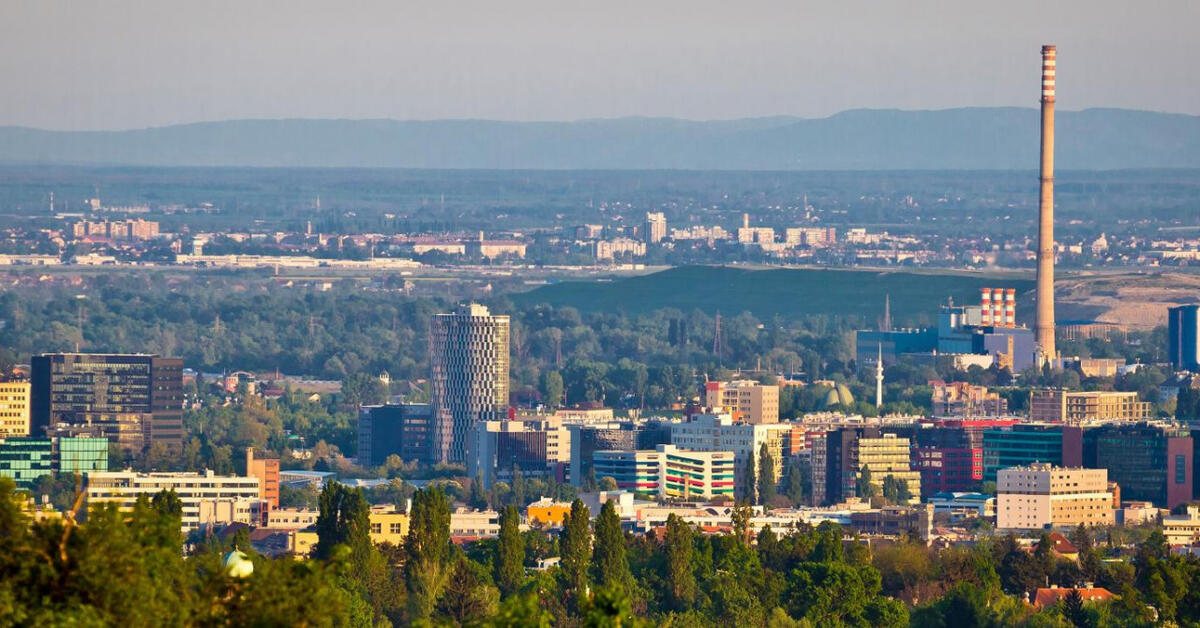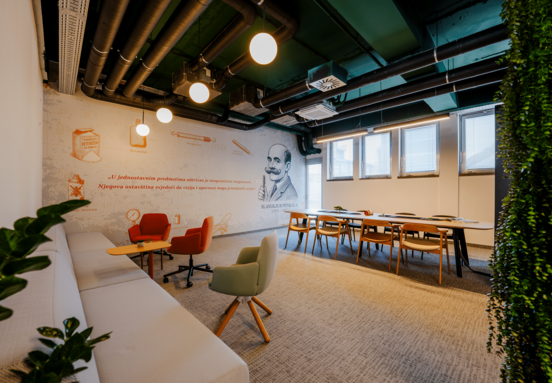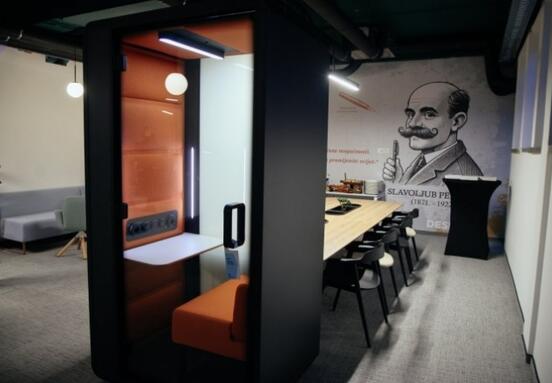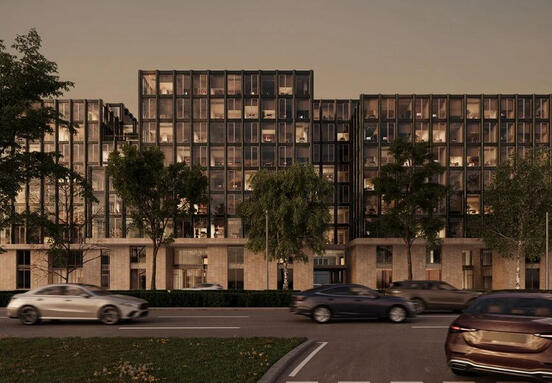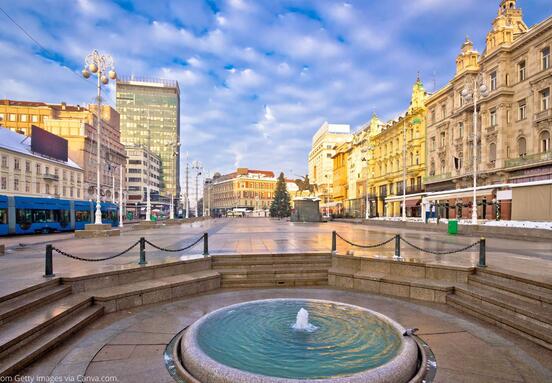In the dynamic office space market in Zagreb, the highest activity since 2008 is being recorded. According to data from CBS International, the market concluded 2023 with a total of 68,900 square meters of leased modern office space, which is an increase of 11 percent compared to 2022. The vacancy rate has reached its lowest level, currently standing at a record level of just under two percent.
There has also been a moderate increase in rents: for Class A office spaces, the range is from 14 to 15.5 euros per square meter per month, and for Class B, it's from 12 to 13.5 euros per square meter per month. However, these amounts are still lower than the prices of prime office spaces in major cities in neighboring countries.
- New and best office projects, located in the most attractive locations, can achieve rental prices between 16 and 17.50 euros per square meter per month - says Ivan Mihaljević, Head of the Office Space Sector within CBS International.
At the end of 2023, he adds, the total supply, including A and B class offices, amounted to 1,566,000 square meters, with Class A office spaces accounting for a share of 38 percent, or just over 600,000 square meters, while Class B offices make up 62 percent, or just over 950,000 square meters of the total supply.
Last year, Mihaljević continues, a total of 30,000 square meters of new modern office projects entered the market, including the Matrix Office Park building C on Slavonska Avenue, the first phase of the City Island project in Novi Zagreb, and the business building Projekt 75 on Radnička Street, while this year began with the completion of the Grawe Garden Center in Vukovarska with an additional 2,100 square meters.
Trends
It is noticeable that the trend of working from home is decreasing, and office spaces retain their position as a very important factor in business.
- There is a significant demand for new, first-class office spaces that contain technological and technical innovations in line with ESG standards in business. The market shows great interest in office projects that are well positioned within the central business zone, excellently equipped with IT and infrastructure, providing flexibility in space organization, and offering additional amenities for their users - says Mihaljević.
He adds that there is also great potential in the reconstruction of existing projects for owners to maintain the quality of their spaces and remain competitive in the market.
In the next 24 to 36 months, a total of 120,000 square meters of new modern office spaces are expected. Some of the announced projects include the Matrix Office Park building D, with a total area of 10,500 square meters, whose construction is expected to start soon, as well as the Supernova Office Towers project in Buzin, with a total area of 15,300 square meters, and the VMD Tower project on Heinzelova which will, Mihaljević emphasizes, have a significant impact on the market after completion.
- Knowing that the average age of the office project portfolio in the Zagreb market is over 20 years, this is a very clear signal that we need new projects that will keep pace with the demands of modern business.
It is evident that the current supply does not meet the needs of tenants, and the market has great potential in terms of developing new projects, so all the announced new square meters will be absorbed very easily - says Mihaljević.
Transactions
In the office market in Zagreb in the last six months, there have been several transactions: S-Immo AG sold its building in Miramarska to Atlantic Trade, Siemens sold its headquarters in Heinzelova Street to a local investor, while HOK osiguranje sold two buildings on Slavonska Avenue (Matrix), one of which was bought by the Center for Vehicles of Croatia, and the other by the investment company Alfi from Slovenia. The company Nekretnine istok bought Grand Center from S-Immo AG, while OTP Bank bought Zagrebtower at the intersection of Radnička and Vukovarska. Hoto Tower, also owned by S-Immo AG, is in the process of being sold.
Although many projects and locations are prepared, Patrick Franolić, director of the agency Spiller Farmer, emphasizes that currently, even though the Croatian market is not as affected by the current crisis as some European countries, there is no economic feasibility for investors.
-
There has been a noticeable decline in interest from foreign investment funds investing in completed projects such as shopping centers, office buildings, and logistics parks, due to the increased percentage of participation and significantly increased interest rates for project financing - explains Franolić, adding that the rise in project financing costs for developers will also slow down the construction of new projects because the interest rate for developers in the last 18 months has increased from three to six, seven percent.
-
Many developers in Croatia are currently recalculating their office projects and adjusting them to the new circumstances, both in terms of costs and expected rental prices - says Franolić, for whom low rental prices are one of the reasons why he believes there will be no new major projects this year.
-
Current low rents ranging from 13 to 16 euros per square meter do not justify investments in new Class A office buildings - Franolić emphasizes, who believes that the market and construction will pick up again when the Zagreb market reaches a minimum effective price per square meter of office space between 16 and 18 euros, depending on location and size.
How will the largest bankruptcy in the history of Austria affect the European market?
The situation in the office real estate market in Croatia's neighborhood varies significantly from country to country, and some of them are much more affected by the current situation than Croatia.
- Austria, Germany, and Slovenia have faced a large number of developer bankruptcies due to insufficiently stable finances, and banks are now faced with a higher percentage of non-performing placements than in Croatia. The most famous example is the largest bankruptcy in the history of Austria, the Signa company, which went bankrupt due to market changes and incorrect management estimates regarding refinancing and price trends - says Patrick Franolić.
He adds that this week in Vienna, a plan for the controlled sale of Signa company's real estate was approved, so there will be no quick sell-off at any price.
-
The goal is for creditors to receive as high a percentage of their claims as possible, significantly higher than 30 percent - he emphasizes, adding that this is a developer who is very active in Germany and Austria but is no longer in Croatia. Franolić recalls that Signa used to own the Hoto Tower in Savska, but sold it to the company S-Immo from Vienna.
-
This bankruptcy has further slowed down new investments in the region, and the industry hopes that its consequences will not cause long-term problems in developed markets - says Franolić.
He notes that markets like Austria's, Slovakia's, and the Czech Republic's suffer much more from rising interest rates and restrictive bank conditions, largely due to strong growth in 2022 and 2023.
- Unlike Austria or Germany, Croatian banks required significantly higher developer participation in financing projects, so developers in Croatia were much more cautious because the project's participation was between 25
